Diagnostic Discovery: Part 1
As a graduate student intern at the Gardens this summer, I spend Monday mornings working with different horticulturists and their gardens. On June 9, I was in the Plant Select® garden with its horticulturist, Sonya Anderson. I noticed the Denver Gold® columbine (Aquilegia chrysantha) had dark, necrotic stems and were breaking off easily at the soil level. I dug out some of the columbine to investigate and found small, white larvae feeding on the roots. I could tell that they were beetle larvae but would need a microscope to properly identify them.
In the image gallery, you can see that the plants have drought stress symptoms: The leaves are all wilted, dry and crispy. This is due to the roots being damaged by the beetle larvae feeding and inhibiting water movement from the soil to the rest of the plant.
Using a dissecting scope to view the roots and soil, I was able to identify the pest affecting the Denver Gold® columbine. I found white, wiry larvae feeding on the inside of the roots of the infested plants, which I identified as beetle larvae because of their encapsulated head and their lack of prolegs. Through further research, I identified the insect as a flea beetle larva that feed on the roots of plants.
The flea beetle is a small, black, jumping insect that is in the leaf beetle family (Chrysomelidae). It feeds on the leaves of plants and lays its eggs in the soil. These eggs hatch and the larvae feed and develop on the roots of the plant. In later stages they burrow into the crown of the plant before pupating. Many species of flea beetles are found throughout the United States and are commonly found in gardens early in the growing season. There are dozens of species found in Colorado—each species with its own preference for certain plants.
To learn what may be in your garden, I’ll dive deeper in part two.
This blog post was written by Amy Hauver, Doctor Plant Health student intern from University of Nebraska-Lincoln.
Gallery
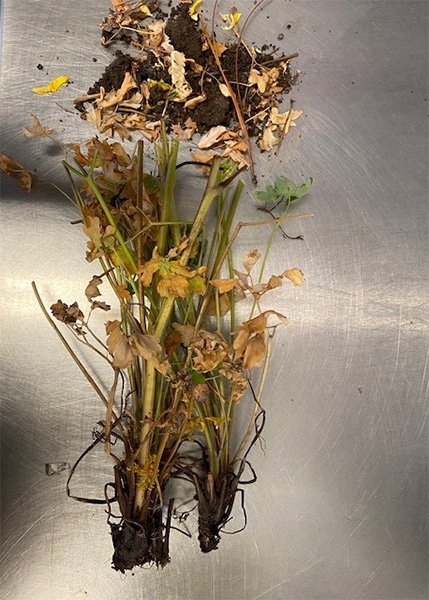

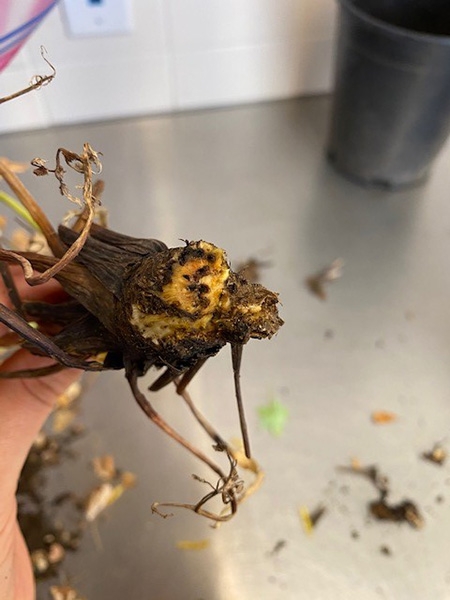
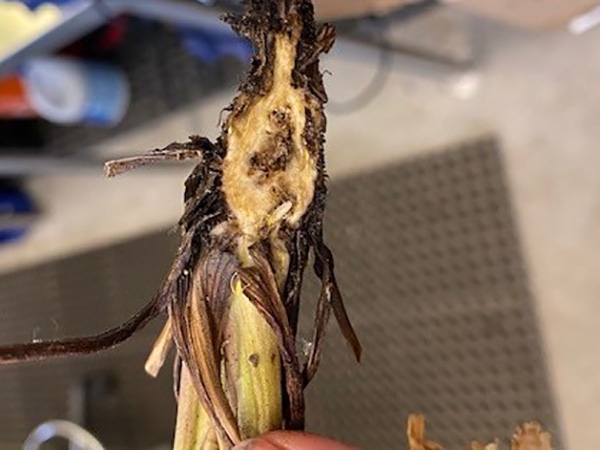
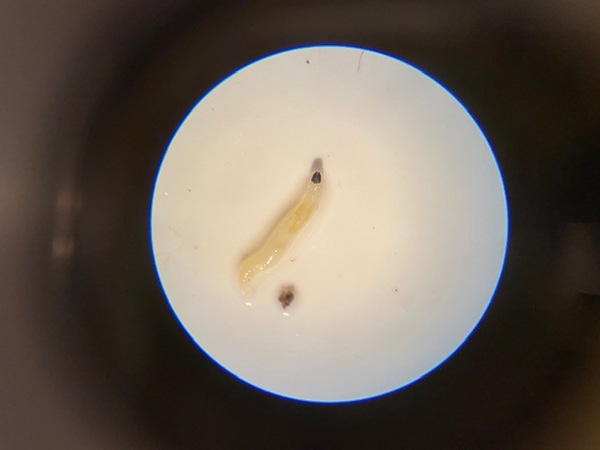
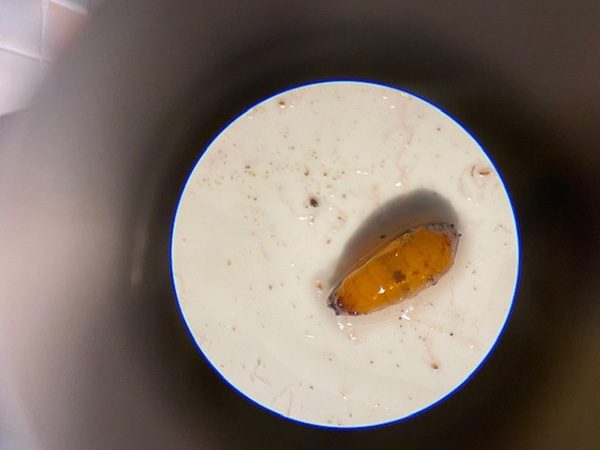
Add new comment